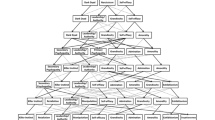Abstract
Despite reports that behaviorism is dead or dying, examination of the data indicates otherwise. The opinions of psychology historians, the number of professional associations devoted to behaviorism, and the increasing number of behavioral publications all support the conclusion that behaviorism is vital and growing.
Access this article
We’re sorry, something doesn't seem to be working properly.
Please try refreshing the page. If that doesn't work, please contact support so we can address the problem.
Similar content being viewed by others
References
Bartlett, J. (Ed.). (1891). Familiar quotations. (E. M. Beck & staff, Eds., 1980). Boston: Little, Brown & Company.
Bernstein, D. J., & Howe, H. (Eds.). (1982). Nebraska Symposium on Motivation: Response Structure and Organization (Vol. 29). Lincoln: University of Nebraska Press.
Bijou, S. W. (1979). Some clarification on the meaning of behavior analysis of child development. The Psychological Record, 29, 3–13.
Franks, C. M., Wilson, G. J., Kendall, P. C., & Brownell, K. D. (Eds.). (1984). Annual review of behavior therapy: Theory and practice (Vol. 10). New York: Guilford Press.
Gilgen, A. R. (1981). Important people in post World War II American psychology: A survey study. Journal Supplement Abstract Service, Document no. 2171.
Graduate study in behavior therapy: Psychology departments. (1981). New York: Association for Advancement of Behavior Therapy.
Hersen, M., Eisler, R. M., & Miller, P. M. (Eds.). (1979). Progress in behavior modification. New York: Academic Press.
Lahey, B. B., & Kazdin, A. E. (Eds.). (1984). Advances in clinical child psychology (Vol. 7). New York: Plenum Press.
Meichenbaum, D. (1977). Cognitive-behavior modification: An integrative approach. New York: Plenum.
Morris, E. K., Higgins, S. J., & Bickel, W. K. (1982). Comments on cognitive science in the experimental analysis of behavior. The Behavior Analyst, 5, 109–126.
Rutherford, R. B. (1984). Books in behavior modification and behavior therapy. Scottsdale, AZ: Robert B. Rutherford.
Skinner, B. F. (1969). Contingencies of reinforcement: A theoretical analysis. Appleton-Century-Crofts.
Skinner, B. F. (1977). Why I am not a cognitive psychologist. Behaviorism, 5, 1–10.
Staats, A. W. (1975). Social behaviorism. Homewood, IL: Dorsey Press.
Staff. (1984, fall). Association for Behavior Analysis: 1984 membership. The ABA Newsletter, p. 8.
Staff. (1984, fall). Division 25 and APA information. Division 25 Recorder, p. 50.
Author information
Authors and Affiliations
Rights and permissions
About this article
Cite this article
Wyatt, W.J., Hawkins, R.P. & Davis, P. Behaviorism: Are Reports of Its Death Exaggerated?. BEHAV ANALYST 9, 101–105 (1986). https://doi.org/10.1007/BF03391933
Published:
Issue Date:
DOI: https://doi.org/10.1007/BF03391933




